When students walked near the Library Lawn earlier last week, they were met with a sign that read “Warning. Abortion Photos Ahead.”
The display was of post-abortion fetuses. The Canadian Centre for Bio-Ethical Reform’s (CCBR) Abortion Awareness Project goal is to introduce Floridians to the victims of abortion.
“We are on campus to display the inhumane nature of abortion as an act that kills the youngest members of the human family, and to have a conversation with people about the humanity of the pre-born,” said Maaike Rosendal, speaker for the CCBR.
About 20 CCBR volunteers traveled from Canada to participate in the two-day event. Their mission is to offer an abortion educational pamphlet and ask “What do you think about abortion?” to students who walk past.
FGCU students then had the opportunity to engage in the conversation. If students engaged, the volunteers shifted the topic to human rights and when life begins.
The CCBR works with a partner organization in the U.S. that raises awareness through victim photography: choosing a “visual strategy for a visual culture.”
“We find that words fail us to describe what abortion does to preborn children,” Rosendal said. “So we choose to display the photographic evidence of what abortion does so that people can draw a conclusion for themselves.”
The U.S. and Canadian organizations are two separate groups that have been jointly conducting educational abortion efforts on Florida campuses. The last time either group was on campus was reported around 10 years ago in 2015 and 2017.
In the 2024 election, Florida’s Amendment 4, the legalization of abortion before fetal viability, failed to pass. The amendment received approximately 57% approval but did not reach the 60% threshold for passage.
Despite the state’s majority voting population leaning toward conservatism on the topic, the CCBR still came to Florida instead of a more progressive state.
“The primary reason I would say that we are in Florida is because any place in the United States, or in the world where preborn human beings are not completely safe, or they are not recognized as human beings from the moment of fertilization, is a place where we want to raise awareness around who they are and what abortion does to them,” Rosendal said.
She’s also concerned about the amendment returning on future election ballots.
“We want to make sure that people realize the implications of that [amendment returning] and that people may change their mind again,” Rosendal said. “So, it’s important for us to have an ongoing conversation about who to prove, or not, what abortion does to them.”
Along with FGCU, The Abortion Awareness Project went to Florida Atlantic University, Florida International University and the University of Central Florida.
On Monday afternoon, digital media design junior Ayden Kelly came to the library lawn with a cardboard sign that read “Women’s Rights,” a silent protest against the CCBR’s pro-life message.
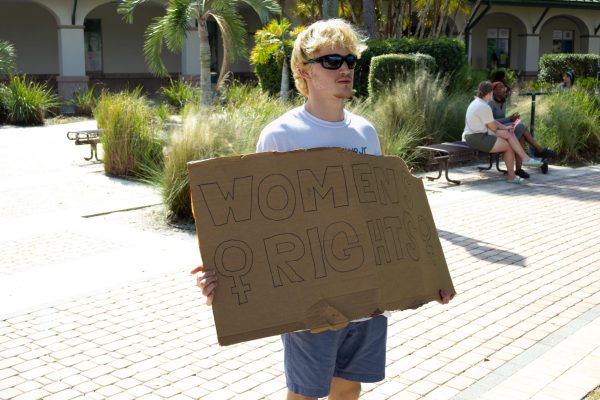
“I got out of class and I saw that they [CCBR] were doing their stuff out here and I just figured ‘How come they get to do stuff like that?’” Kelly said. “It’s probably because they have a lot of money for it. I thought ‘Why? Who?’ Obviously, somebody benefits from this. So, I figured I’d just skip my next class and I went out to my car, took out a cardboard box, cut it up and wrote a sign on it.”
Junior psychology major Addison Grindo felt nauseous while viewing the display on campus.
“What’s even more disgusting is we have students, future students, who are touring our campus and this is what they’re seeing?” Grindo said. “If I came to campus, no matter how pretty the pictures were online. If I came here and saw this, I would not want to come here. This is discouraging.”
Over the next few hours, students who agreed with Kelly’s stance joined him. The group planned a more official protest for the next day.
On Tuesday afternoon, the group met at the library lawn around 1 p.m. They had both self-made signs and signs given to them by FGCU Generation Action, a student-run organization affiliated with Planned Parenthood, both advocating for women’s reproductive rights.
Among them was biology junior Kat Escalona.
“This [Abortion Awareness Project] is completely grotesque and it is devoid of any good faith,” Escalona said. “They [CCBR] are using the natural human reaction to react negatively to blood to scare people away from life-saving health care.”
The CCBR volunteers are trained on how to speak to students about abortion.
Kennedy Price, a freshman communication major who joined the protest, felt the CCBR’s way of approaching students could be different. She feels that the question, “Do you believe in human rights?” is a bland statement to persuade students to listen to the CCBR.
“Some of them [CCBR volunteers] are even following students, trying to tap them on their backs and get their attention,” she said. “Even when students walk away, they [CCBR volunteers] still continue to make them hear what they have to say. I feel like they could go a lot better about this if they need to say something, but just the way they’re doing it, it should be handled a lot differently.”
By the end of the day, around 20 students joined the protest opposing the CCBR.
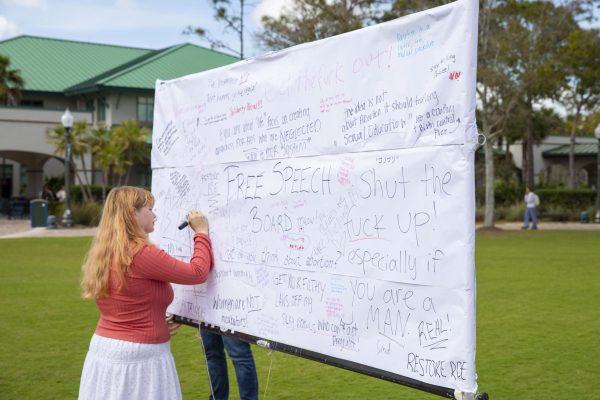
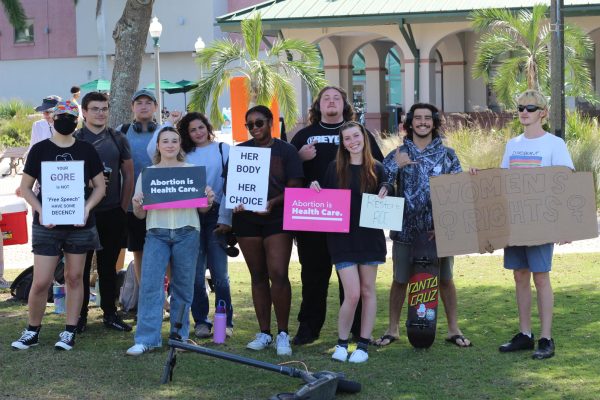
When speaking with the CCBR volunteers, many mentioned how they like speaking with students on the topic, hoping to change their viewpoints on abortion.
“The fact that every day we go out and change minds. We talk to a lot of different people. Some people are not happy,” an anonymous CCBR volunteer said. “Some people are not pleased with the images. Of course, it’s not something that we enjoy doing, standing in front of these images because they are very graphic, but it’s something that needs to be done.”
CCBR volunteer Klaas Cho finds that the reaction from students differs from one place to another. However, he finds Floridians to be open-minded to having discussions.
“I think that’s a very good thing. When you’re stuck in your well and do not want to explore, that really gets you in trouble,” Cho said. “You don’t know if you’re 100% wrong or right.”
Another backlash against the CCBR from students included the misinformation the group was stating, including that abortion is the leading cause of death. The leading cause of death is heart disease.
“There’s blatant disinformation,” education major Abbie Mount said. “Google is free and you easily can go look up any stats you want to. According to multiple sources that I looked at during my last class, because of this shit, there was obvious misinformation that they had.”
Some students were surprised the university let the CCBR onto campus, given the graphic images used by the organization.
FGCU is an open, public campus, which means that individuals and organizations can express their right to free speech on university grounds. As part of the application procedure for a free speech event on campus, event organizers must provide descriptions of all linked activities.
This means that the university knew about the graphic images used by the CCBR.
“While we have policies and regulations in place that address the legal parameters for free speech activities at FGCU, the Campus Free Expression Act prevents the university from shielding students, faculty and staff from expressive activities,” FGCU Director of University Communications Pamela McCabe said. “It is an individual’s decision to shield themselves from such events or avoid an area where expressive activities are occurring.”
The CCBR’s request to hold a free speech activity on campus was confirmed on Nov. 22.
One day after the demonstration, Bill Calvin, a longtime active member of the U.S. and Canadian organizations, said the CCBR talked to 511 pro-abortion FGCU students, 125 students became more pro-life and 94 told them they became totally pro-life.
“We want to make sure that every person who walks by is well informed, and because we find that often we talk about the topic of abortion, we talk about the choice and not about what’s being chosen,” Rosendal said. “We believe that everybody who’s old enough to have an abortion deserves to know what abortion is, and so that they can make their decisions based on this.”






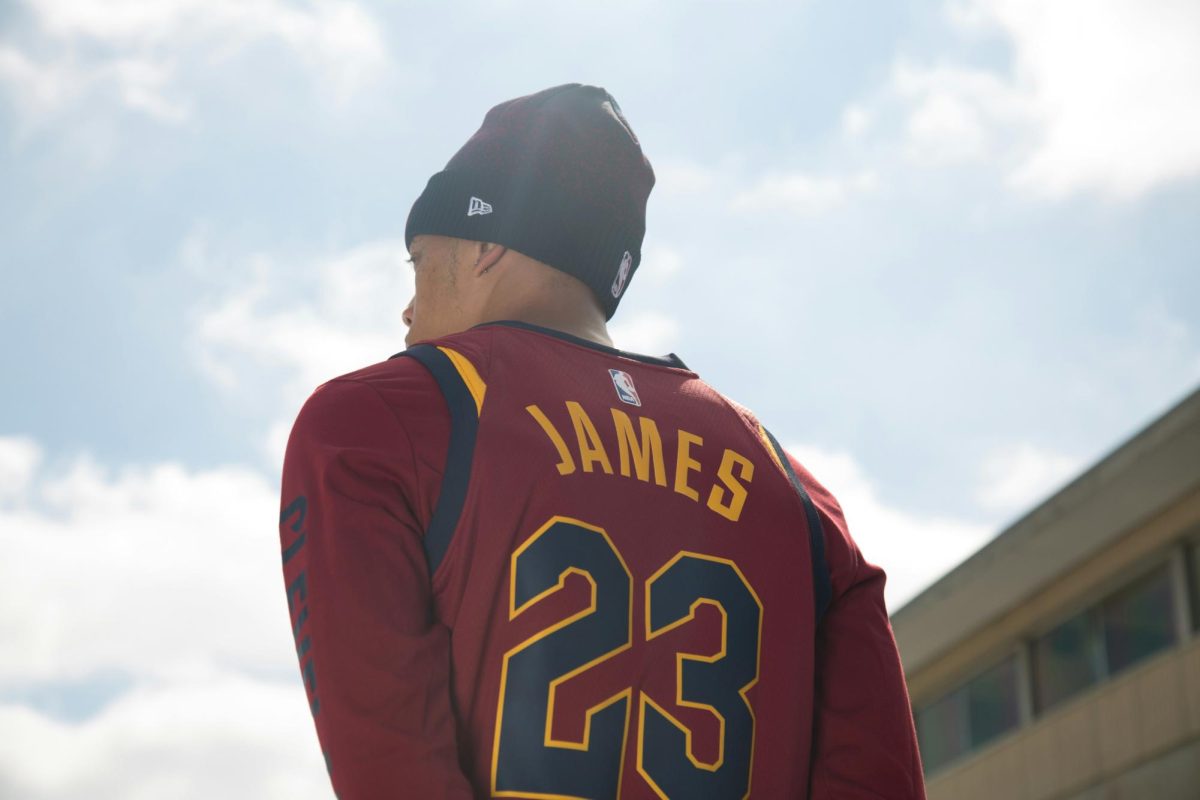
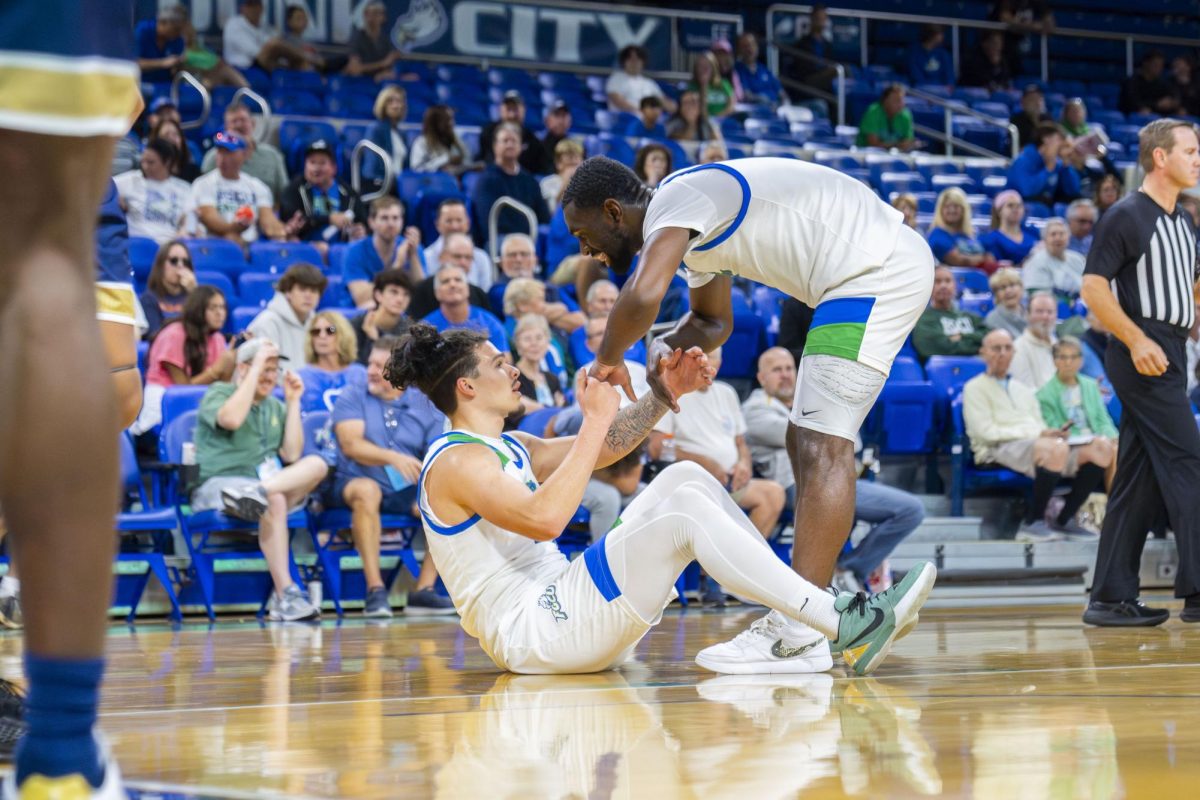
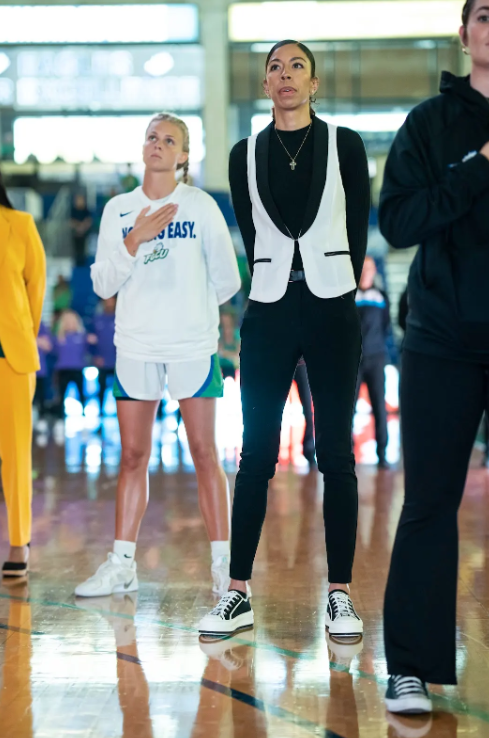

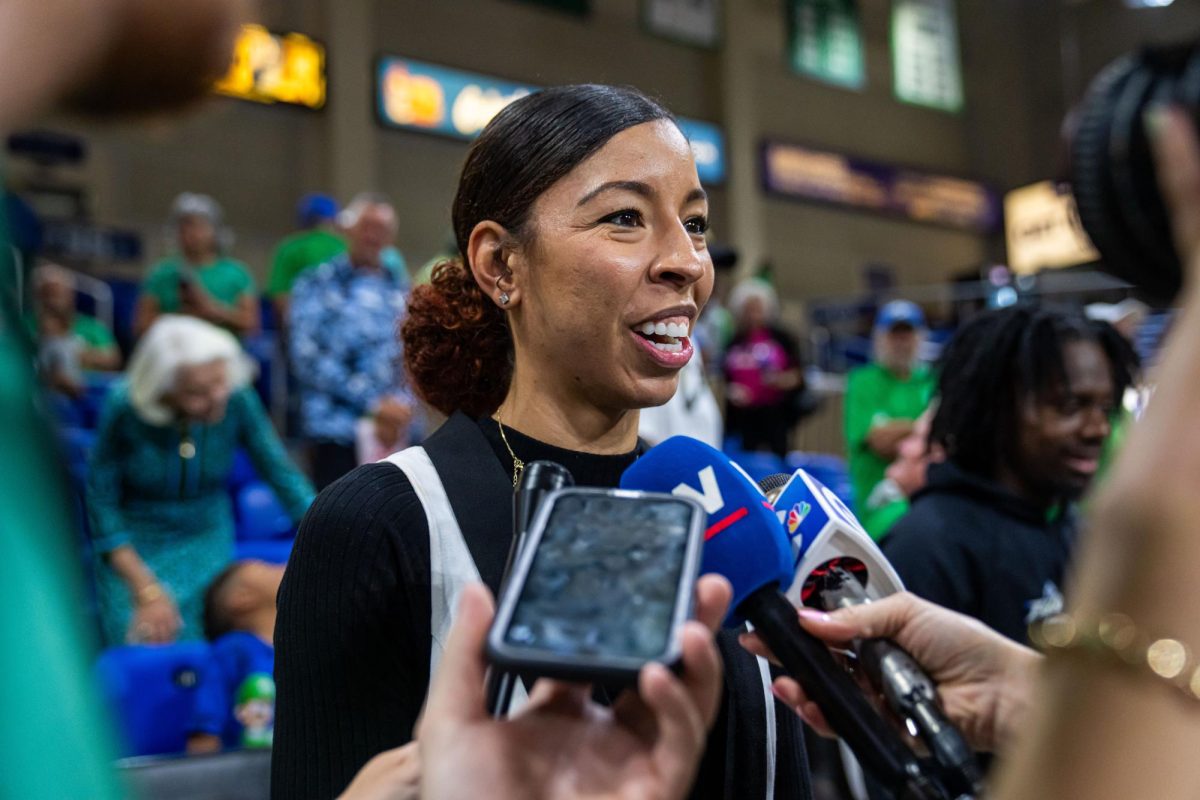













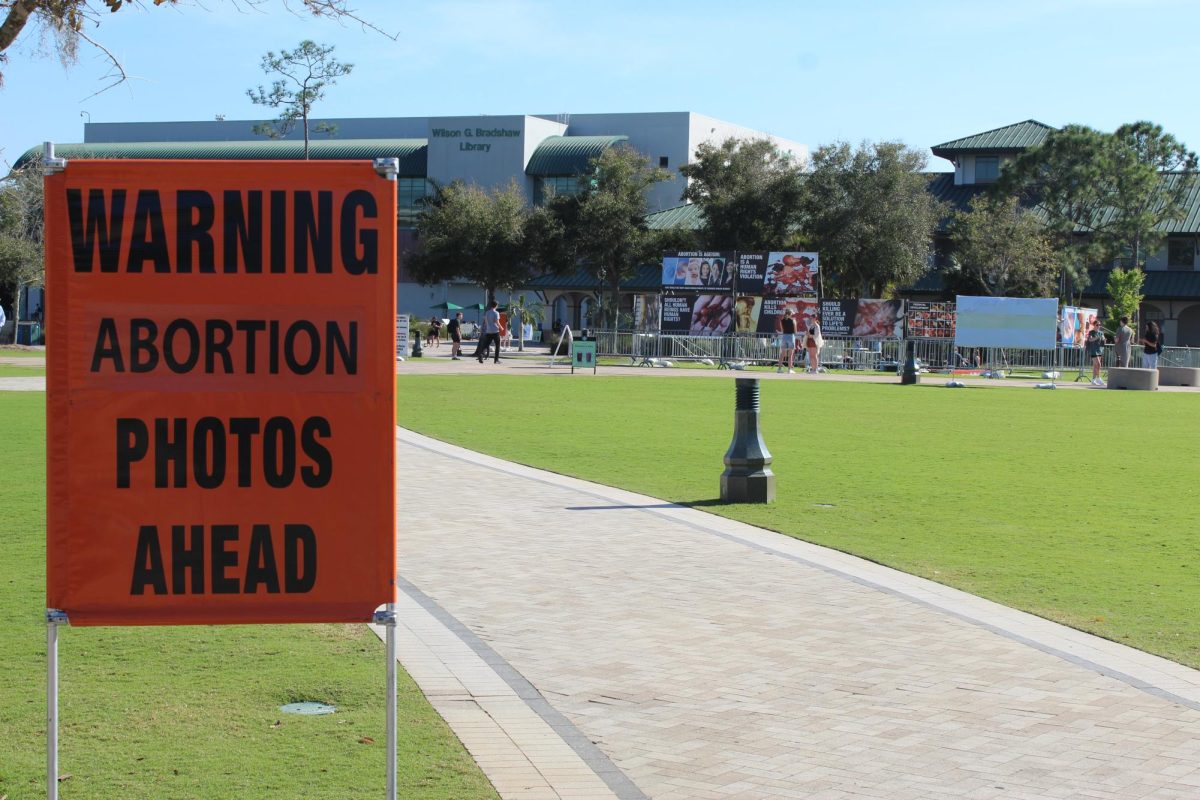
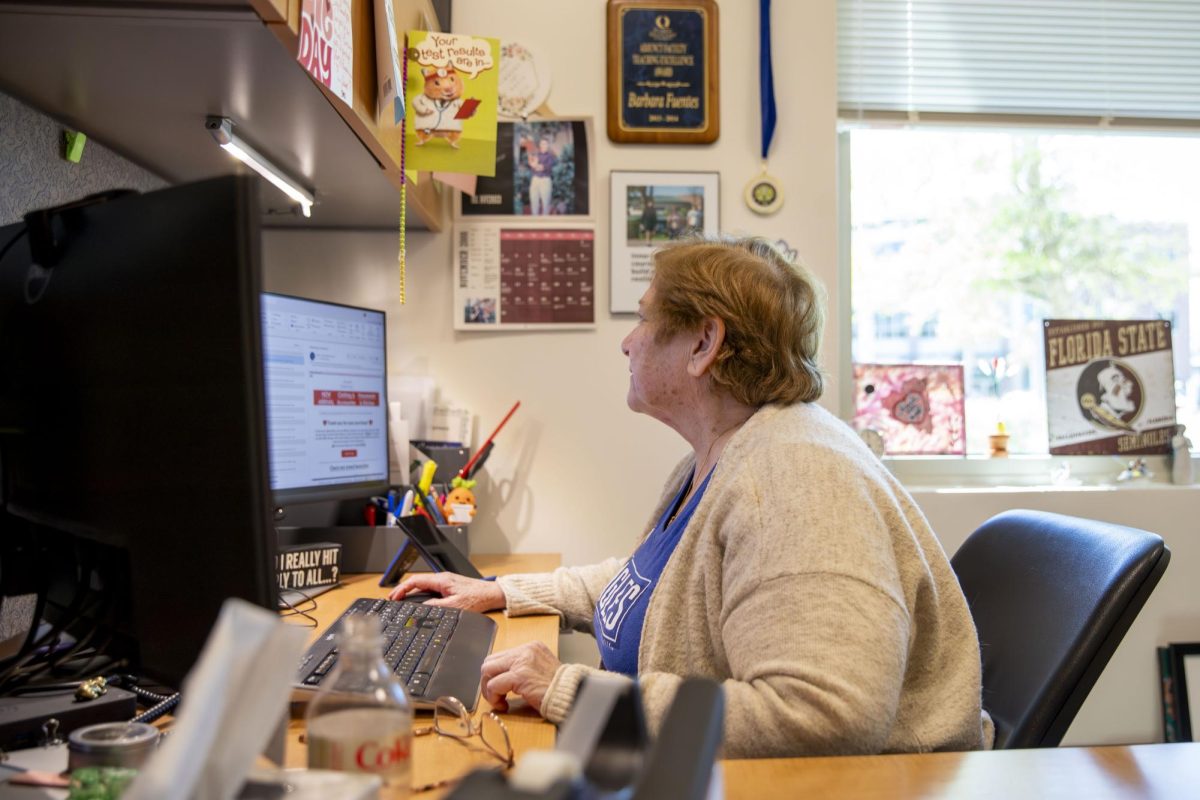
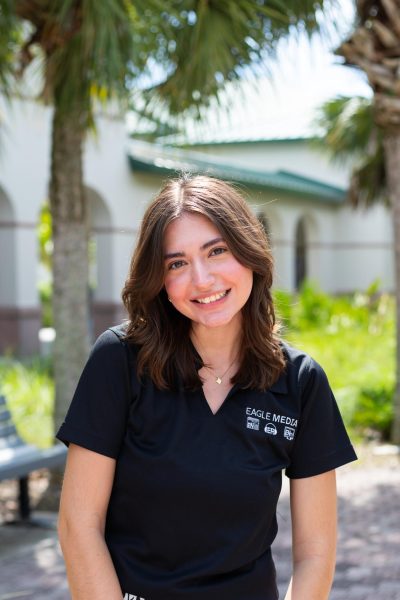
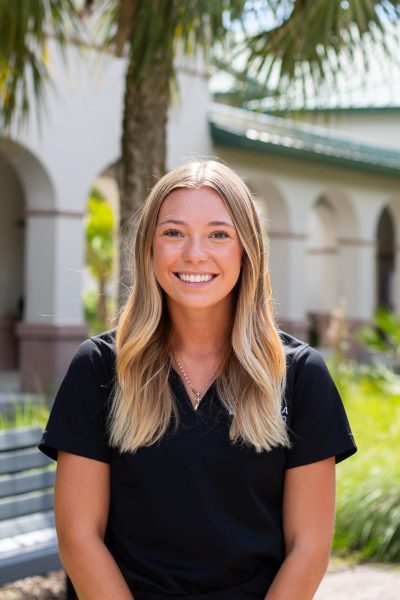
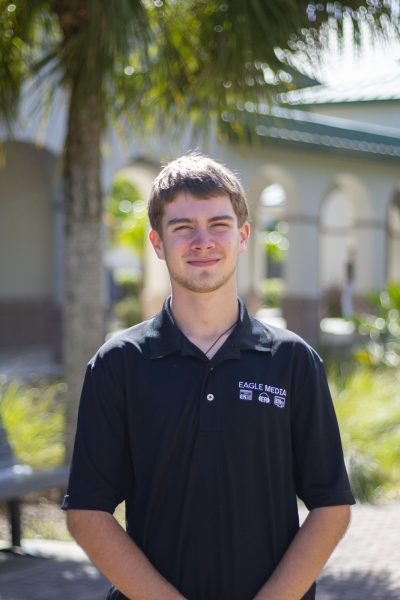
Rita Joseph • Feb 25, 2025 at 7:44 pm
There is no right to abortion in the Constitution.
First, the Constitution recognizes the right to life—the most basic right of every live human being to go on living. Place of residence is irrelevant. A human being is entitled to full human rights no matter where that human being currently resides — in a prison, or on the streets, or in the womb of one’s mother.
Second, the Constitution recognizes the right to equal protection of the law for all human beings without exception—nowhere isequal protection limited only to those human beings who meet arbitrary stipulations regarding size, age, disability, or stage of development, or degree of dependency, or “wantedness” [c.f., “the unwanted child” in Roe v. Wade (153).]
Third, the Constitution recognizes the right of all human beings to be treated as “persons” never as property—constitutional law does not permit human beings to be owned and to be destroyed at the will of a so-called owner.
Congress is authorized to apply the “No property in man” principle, recognized from the beginning by the Founders. [Records of the Federal Convention (August 25th 1787)
A mother’s daughter or son is neither her possession to be consigned to her abortionist nor her “property” to be poisoned with an abortion pill.